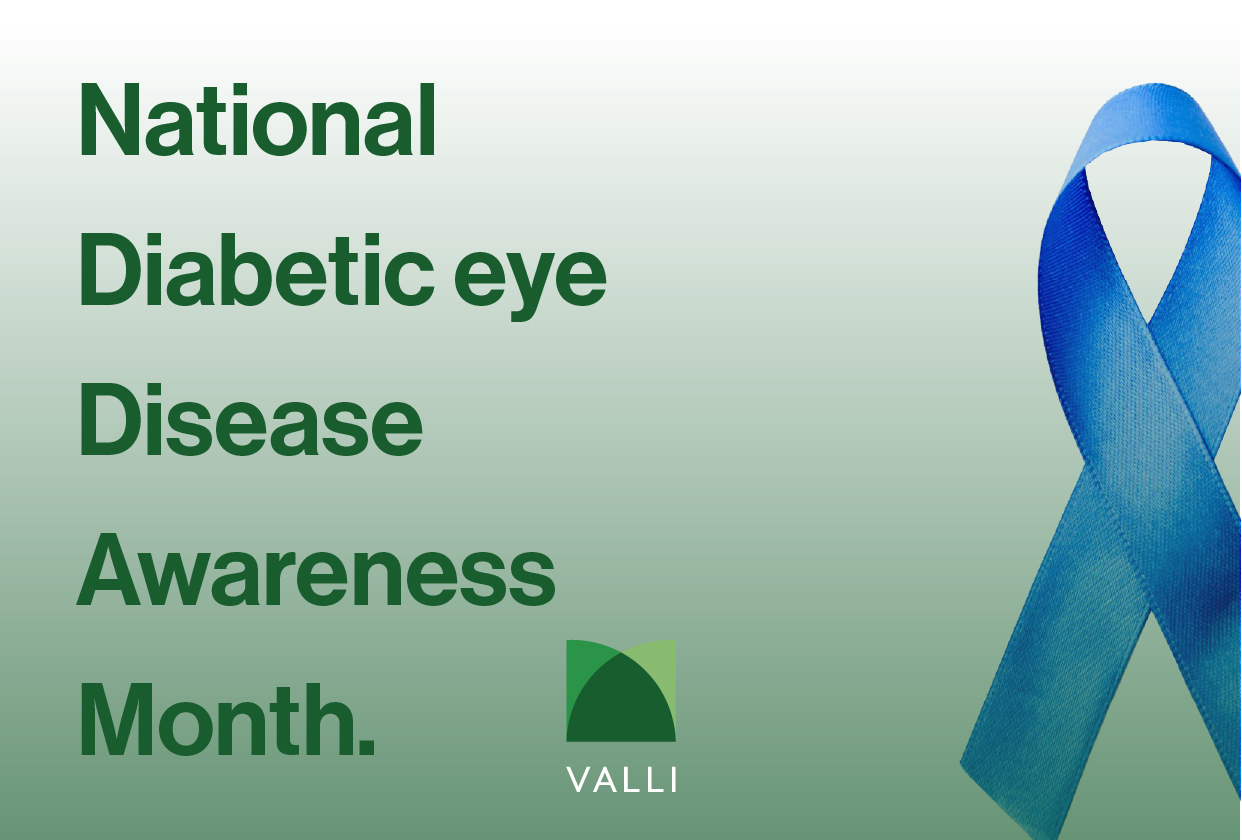Diabetic Eye Disease Awareness Month!

When you think of diabetes how often does the thought of eye health come to mind? Many people are surprised when they find out about the huge effect diabetes can have on eyes. As November comes around accompanied by darker days and colder temperatures it also brings with it a time to discuss and become aware about diabetes and its consequences to vision, as it is Diabetic Eye Disease Awareness month. This month aims to increase awareness about how diabetes affects the health and vision of the eyes as well as educating people on how best it can be managed to prevent complications such as vision loss and even blindness.
Diabetes is a disease that causes a person’s blood sugar level to become too high. There are two main types of diabetes: Type 1 and Type 2 , approximately 90% of UK adults living with diabetes have type 2. However, both types can come with significant risk of damage to the heart, kidneys, nerves, and the eyes if not managed correctly. Diabetic Retinopathy is a complication of diabetes that can cause vision loss and even blindness if left untreated. It is caused by high blood sugar levels damaging the blood vessels in your retina – the light sensitive part of the eye, cutting off its blood supply. Diabetic retinopathy is one of the leading causes of global blindness when left undiagnosed and untreated and is the number one cause of vision loss in the working-age population, which is why being educated on the disease and its risks is so vital to protecting our eye health.
Often, diabetic retinopathy does not produce many symptoms at first and can go unnoticed for a long while. In fact, vision only becomes affected when the disease becomes severe, and damage becomes irreversible. As the condition progresses symptoms may arise such as:
• Blurred vision
• Gradually worsening vision
• Shapes or spots floating in your vision (floaters)
• Eye pain or redness
This is why having regular eye checks and screening for a person living with diabetes is extremely important. Receiving an early diagnosis of the disease before your vision is affected enables any treatment needed to be far more effective in preventing or reducing vision loss.
Whilst diabetic retinopathy cannot always be prevented if one has diabetes, there are definitely measures that can be put in place to protect the health of your eyes and reduce the risks associated with diabetic retinopathy. Attending regular eye examinations and having good control of your blood sugar and blood pressure is paramount in helping to prevent vision loss. Following these next few pieces of advice can help reduce your risk of developing eye diseases associated with diabetes or prevent symptoms from getting worse.
• Managing your diabetes. This includes eating healthily and committing to some form physical activity everyday as well as taking your diabetes medications as prescribed.
• Monitoring your blood sugar level. Making sure to check your blood sugar level frequently to ensure that levels stay consistent and do not rapidly spike or drop.
• Having regular eye checks. Going for regular eye tests (an annual one is recommended) as there is an increased risk of other eye conditions such as cataracts and glaucoma. The optometrist is able to monitor the health of the eye and check for any changes in vision, helping to protect your eyes from damage caused by diabetic retinopathy. Diabetics are entitled to an NHS funded eye test once a year.
• Diabetic eye screening. Diabetic eye screening is a test that checks specifically for diabetic retinopathy using a retinal imaging device. Going to this annual appointment will allow any retinopathy to be diagnosed early and help in preventing it from progressing to a stage where it becomes more difficult to treat.
• Keep your blood pressure and cholesterol under control. Having a healthy balanced diet as well as, exercising regularly and stopping smoking can help to manage diabetes and its risks.
This November, take some time out to learn about how you can protect your eyes from the risks and complications of diabetes and diabetic retinopathy so that diabetes can’t ever stop you from living your life with happy healthy eyes!
By Hinaa Munshi
Optometry student at the University of Huddersfield


